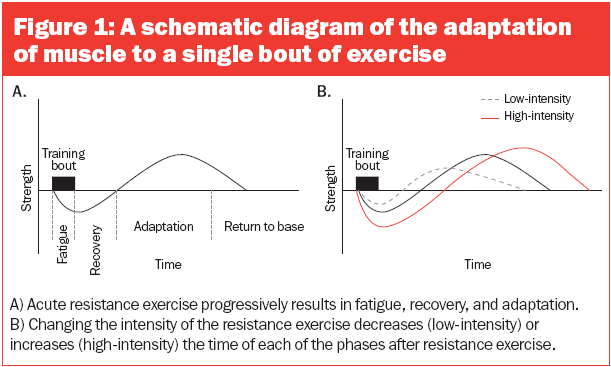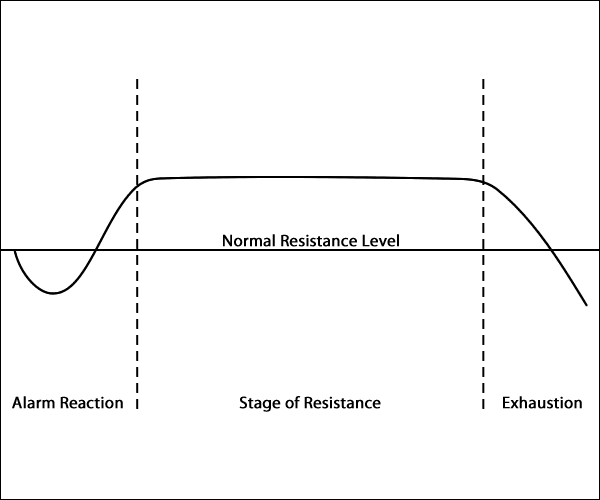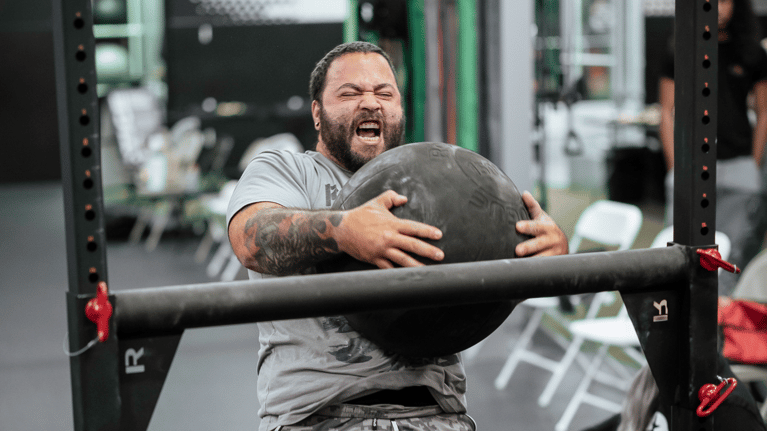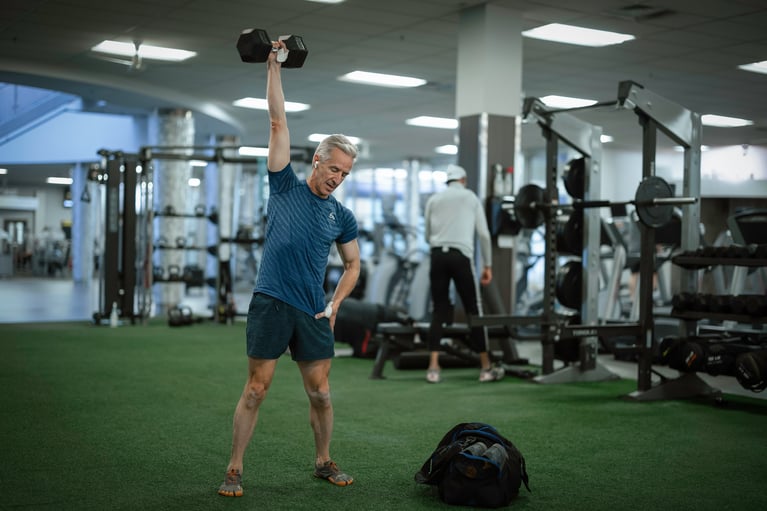
Ever struggle to get out of bed in the morning during the week? Do you feel like your performance drastically dips towards the end of the day? After work, do you feel too tired to complete any more tasks for the day?
We’ve all experienced this at one point or another in our busy lives, and most of us just accept it as a routine part of life. Fortunately, it is not.
What you are describing is called fatigue, and it may be hindering your performance at work or school, not to mention its probably keeping you from your health and fitness goals.
Fatigue feels like you are always tired, constantly overworked, have little or no energy for routine tasks. This tired feeling looms over you as you try to find the energy to balance work, fitness, and your personal relationships. It is common for people who experience fatigue on a daily basis to feel like no amount of sleep or rest will help energize them. This feeling leaves people mentally fuzzy and emotionally drained. When you have barely enough energy to complete your errands, how do you find enough energy to work toward your weight loss (or possibly weight gain) goals to improve your health?
Let’s dive in to understand the most common sources of fatigue and the steps you can take to improve your daily routine, rejuvenate your life, and get you back on track to achieving your health goals.
Tracing the sources of your fatigue
Understand there is a difference between being tired periodically after a long day of work and being tired on a daily basis. The latter is sometimes referred to as Chronic Fatigue Syndrome, a clinical condition where fatigue has lasted longer than 6 months.
With more acute, non-clinical fatigue that many of us face, it is typical to experience many of the symptoms of fatigue that hamper our ability to achieve our goals: weight loss, weight gain, or even maintaining your body weight.
Symptoms of fatigue include:
- Feeling lethargic
- Slower reaction times
- Memory Loss
- Reduced appetite
- Dizziness
- Moodiness
- Increased cortisol levels
With the hectic nature of our daily schedules, it is easy to see how we allow sources of fatigue to pile up.
Late for work? No time for a well-balanced breakfast– some snacks or doughnuts will have to work.
Forgot to make your lunch? Fast food it is!
Staying late to finish a project? The gym will have to wait– it’s time to go home for dinner.
And then the kicker: you get home after a long day and just want to sit down, eat food, and get all caught up on your favorite shows. Think of how many times during the week you follow the routine of eating unhealthy meals, staying up too late, and neglecting your fitness program. The daily cycle of fatigue-enabling behaviors goes on and on, sabotaging our best efforts and intentions!
Take charge against fatigue
It seems despite our best efforts, there is no way to prevent fatigue from hampering our efforts to reach our goals. Are we all destined to fail to reach our fitness goals?
The answer is a resounding no; there is a lot you can do to prevent fatigue and rejuvenate your life.
While there are many other contributing factors that can keep weighing you down, here are four common issues:
- Extreme physical activity or overtraining
- Lack of consistent physical activity
- Inconsistent sleep routine
- Poor eating habits and overconsumption of alcohol
Think about your daily routine now. Are you getting regular physical exercise? How about a consistent amount of quality sleep? Are you regularly eating balanced meals that align with your fitness goals?
Let’s explore how each of these factors affects fatigue.
Understand the balancing act
Fatigue is actually a normal part of the training process; however, as fatigue is prolonged, it becomes known as “overreaching”, or worse, overtraining. Both conditions occur when there is an imbalance between exercise stress and recovery from that stress. Overreaching is common in athletes and leads to acute inflammation. This condition only requires a short recovery time (no more than a couple weeks), and can even lead to improved performance. However, overreaching can become overtraining which leads to chronic inflammation and injury. Recovery from overtraining can take months and even years.
Imagine this: you fatigue your body during exercise, and with adequate rest and recovery, your body bounces back, or supercompensates. Think of when you feel stronger, faster, or better conditioned in subsequent days and weeks– you have improved!
When you reduce the amount of rest and recovery between workouts or add in more training, your body cannot bounce back as easily in the same amount of time. The weight on the bench press feels heavier, you feel tired on your run, and the first round of spin class really takes a toll. You are fatigued!

Image source: Peak Endurance Sport

Image source: Positive Health
If you are focused on making daily efforts to improve your health and fitness, it is critical to understand that what you do outside the gym in the other 23 hours of your day matters! Your efforts are going to waste if you don’t balance training with recovery. No matter if you are a weekend warrior trying to get back in shape or a well-trainedathlete, you must remember the impact that fatigue has on our training and performance.
Let fitness fuel your fire

On the other hand of the spectrum are people we don’t get enough physical activity. If we want to keep fatigue in check as we pursue our health and fitness goals, our fitness plan itself can help us accomplish this. It turns out that exercise helps us increase brain function, reduce our level of stress and anxiety (by reducing levels of the hormone cortisol), improves our mood, and helps keep us mentally sharp.
Remember that fatigue affects you in the exact opposite way: it zaps your energy, leaves your thoughts feeling fuzzy, and dampens your decision-making capabilities. A review of research studies on the effects of exercise on the brain health and function highlights that regular exercise helps prevent fatigue from negatively impacting memory and decision making. In summary, exercise and training play an important role in the prevention of brain fog and the promotion of mental sharpness.
Sleep your way to health and fitness

The significant impact of sleep on well-being cannot be understated and as you might suspect healthy sleep habits is critical to preventing fatigue. An ever-expanding body of research is showing that regularly getting 8 hours of sleep each night is critical for alertness and to minimize fatigue.
If you are struggling to make it through your afternoon and lack the energy to make it over to the gym, poor sleep might be the culprit. Studies focusing on airline pilots show how losing out on quality sleep is known to cause both slower thinking patterns and reactions. Think of memory issues or difficulties in making decisions you have when you hit your afternoon wall. Your work may not be as complex as flying a 787 aircraft, but it is affected nonetheless!
Sleep can actually enhance your training and performance as well. Well-rested individuals have better reaction times, fewer injuries, athletic longevity, and faster sprint times. Studies following teenage athletes showed that those who are chronically sleep deprived have almost twice as many injuries as those who get more consistent, quality sleep.
Further studies on adults who are sleep deprived revealed their reaction times are up to 50% slower than when they are rested. This same study compared being sleep deprived after one very poor night of sleep to that of being legally intoxicated with a blood-alcohol level of 0.10%!
If you want to combat fatigue and make gains in your fitness and performance, prioritize sleep.
Here are some healthy habits to adopt to improve your sleep quality:
- Try to set a regular bedtime and sleep between 7-8 hours.
- Exercise daily. Do it earlier in the day so you aren’t too wired to fall asleep.
- Minimize exposure to bright lights before bedtime. Try to make your room as dark and comfortable as possible.
When it comes to food as fuel, choose wisely

One of the more surprising sources of fatigue comes from the type of food we consume as fuel. As noted before, consuming junk food, drinking alcohol, and an inconsistent diet all contribute to fatigue.
But shouldn’t those calories help give us energy?
Eating a healthy meal in the 3 to 4 hours prior to training can help fuel performance during exercise by keeping your muscle-fuel stores topped off. Replenishing the body in the 30 to 45-minute window after exercise with quality foods also appears to be better for rebuilding muscles than delaying your meals.
Despite this time frame focused around exercise, this does not mean your food intake can be neglected for the rest of the day!
Nutritional intake is a key factor in fatigue. We are probably most familiar with malnutrition that occurs from nutrients deficiency or undernutrition, but it can come from overnutrition which is the overconsumption of nutrients and calories. Either form of malnutrition can fatigue, among other symptoms.
And don’t forget, meals we eat absolutely have an effect on our fatigue levels by way of affecting our hormones and blood glucose levels.
Choosing the right foods throughout the day will help you manage your nutritional intake, blood glucose, and thus combat fatigue.
Need snack ideas? Try almonds, walnuts, chia seeds, spinach salads, pumpkin seeds, or berries. These foods contain healthy Omega-3 fats, protein, or low glycemic carbohydrates to help you keep your energy levels more steady.
Final Thoughts
We covered the four most common reasons for fatigue: overtraining, a sedentary lifestyle, sleep deprivation, and poor dietary habits. But there are many other factors that may be affecting your energy. The main thing to keep in mind is that with fatigue, there are many factors that you can control when it comes to preventing or correcting the onset of fatigue. Your health and fitness goals depend on it!
**
Matt Hauck, MS, CSCS is a fitness and performance specialist, working with high school, collegiate, professional, and Olympic athletes, in addition to fitness and wellness enthusiasts.
Blog courtesy of InBodyUSA.
Article contributed by Geraldine Chapman
Geraldine Chapman is the Director of Information Marketing & Social Media at American Family Fitness in Richmond, VA. She’s been in the fitness industry professionally since 1997 as a personal trainer, group fitness manager, and fitness instructor. She has trained and certified in multiple fitness programs over the years. Her favorites to teach are barre, Active®, Blast®, and Power®. Geraldine graduated from Virginia Commonwealth University with a B.A. in Communication Arts & Design. She is also a Certified High-Performance Coach and Applied Neuro Strategist. She is passionate about researching autoimmune diseases and how lifestyle, fitness, nutrition, and mindset play a vital role in the prevention and management of autoimmune issues. When not working, you can find Geraldine with a camera in hand, enjoying quality time with her family and riding her motorcycle around town.






